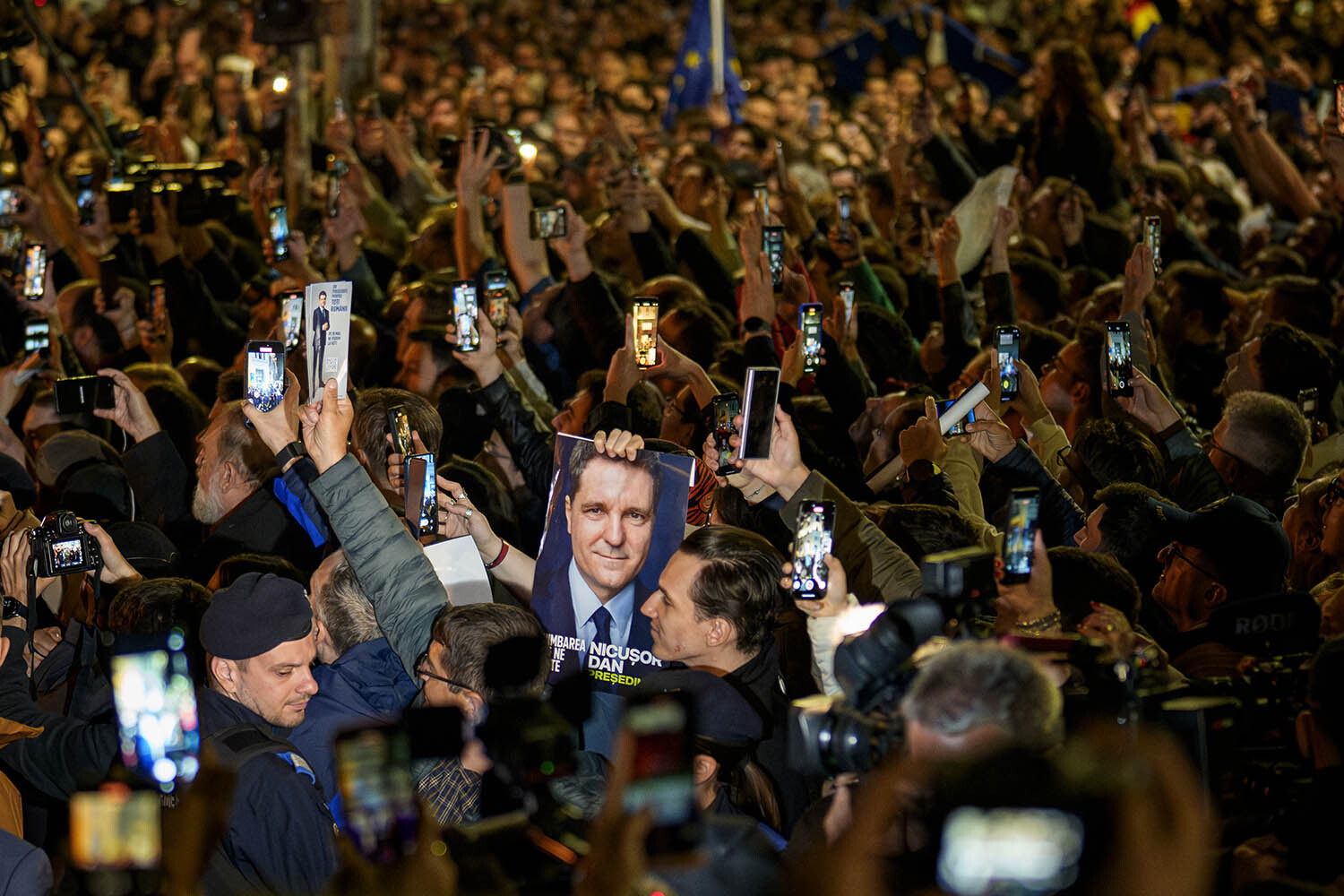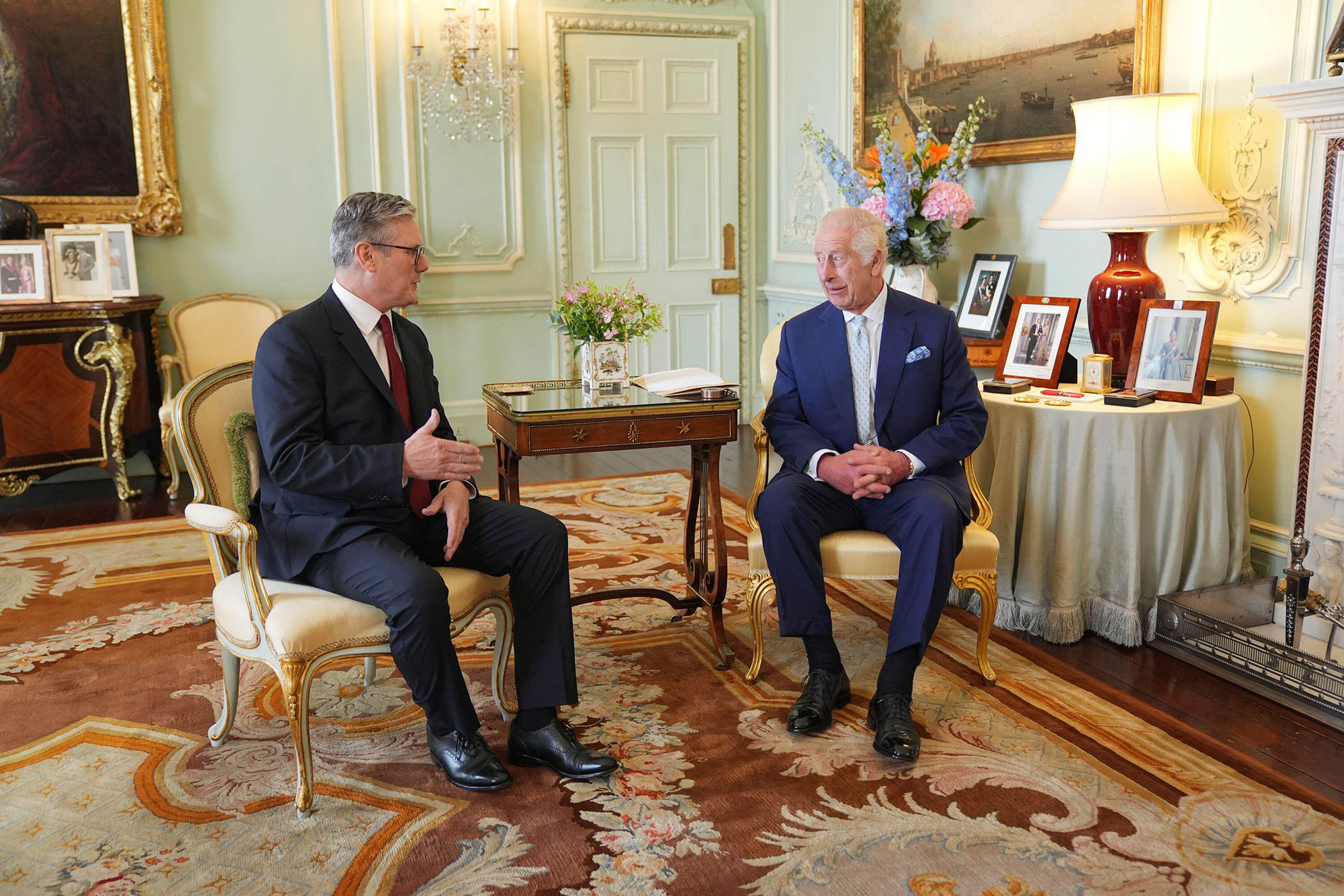Welcome to the Sensemaker, our daily newsletter. It features calm and clear analysis on the stories driving the news across tech, politics, finance, culture and more. The Sensemaker will appear here every morning, but to receive it in your email inbox, sign up on our newsletters page.
The pro-EU Bucharest mayor, Nicușor Dan, won Romania’s presidential election on Sunday. He defeated George Simion, a former football hooligan who likes Trump and wanted to stop help for Ukraine.
So what? Reports of the death of liberal politics are exaggerated. Despite far-right gains, the centre ground is holding, and recent elections across the world show many voters still crave moderation. Success stories this year include:
•
Poland. The centrist mayor of Warsaw, Rafal Trzaskowski, narrowly won the first round of the presidential election on Sunday.
•
Portugal. A centre-right coalition was victorious in a snap general election, also held on Sunday.
•
Australia. Voters returned the left-leaning Anthony Albanese to power in a landslide a fortnight ago.
•
Canada. Right-wing candidate Pierre Poilievre fell short, as former Bank of England governor Mark Carney won April’s federal election promising to take the fight to Trump.
•
Germany. Friedrich Merz, a pro-EU Atlanticist, became chancellor earlier this year.
Anti-Trump bump. Instead of galvanising right-wing populists trying to take a leaf out of his book, the US president appears to have bolstered support for their centrist opponents.
•
Poland’s opposition candidate, from the populist Law and Justice party, met Trump in the Oval Office and held a rally with Romania’s Simion while campaigning.
•
Australia’s opposition candidate wanted to impose his own Elon Musk-style ‘efficiency’ cuts, ban the Aboriginal flag and abandon a target to reduce greenhouse gas emissions.
•
Canada’s Conservatives squandered a 27-point lead in the polls to finish second, after running a “Canada First” campaign that invoked Trump’s own slogan.
So mainstream. Romania’s new president is a softly-spoken mathematician who has governed the country’s capital since 2020. He’s a strong advocate of the EU and Nato and has promised to continue supporting Ukraine, for which Romania is an important logistics hub.
Triumphant. On Monday, Dan told supporters: “What you did was extraordinary. You confronted the hate wave. This is your victory.” They responded by chanting: “Russia, don’t forget. Romania isn’t yours.”
Surprise. Dan’s victory was unexpected. He did badly in the first round of voting in May. But he won the second round comfortably, with 54 per cent of the vote to Simion’s 46 per cent. Turnout was the highest in a quarter of a century, reflecting the high stakes of the election.
Imitation game. Simion initially refused to concede, alleging ballot fraud and writing on social media on Sunday night: “I am the new president of Romania.” He later conceded victory to Dan.
Take two. Neither man was supposed to be on the final ballot paper. But in December, Romania’s constitutional court scrapped the country’s initial election and ordered a re-run after a far-right candidate, Călin Georgescu, emerged from nowhere to lead the first round of voting.
Nu este permis. The decision was made after intelligence reports emerged suggesting a deluge of supportive TikTok videos could have been coordinated by a state actor. The documents pointed to Moscow’s history of “interfering in the electoral processes of other states”. Georgescu was banned from running, but Simion indicated he would try to make him PM.
Newsletters
Choose the newsletters you want to receive
View more
For information about how The Observer protects your data, read our Privacy Policy
A big handful of salt. Liberals should feel buoyed by this year’s results, but there are reasons not to be complacent.
•
Romania. Dan won the presidency as an independent, after voters spurned the two main traditional parties.
•
Poland. Although a centrist candidate triumphed, a nationalist took second place, and the far-right third and fourth. Trzaskowski is not expected to win the final round.
•
Portugal. The far-right surged in popularity to come joint second in terms of vote share on Sunday.
•
Canada. The conservatives may have disappointed expectations, but have formed the largest official opposition in Canadian history.
•
Germany. The nationalist AfD doubled its vote share in February, and Merz only became chancellor on the second attempt.
That said… Winning elections is what really matters. Sunday’s results will strengthen the EU and Ukraine. Slovakia’s Robert Fico and Hungary’s Viktor Orbán, who are sceptical of the bloc and have close ties to Putin, will be further isolated.
Photograph by Andreea Alexandru/AP Photo



